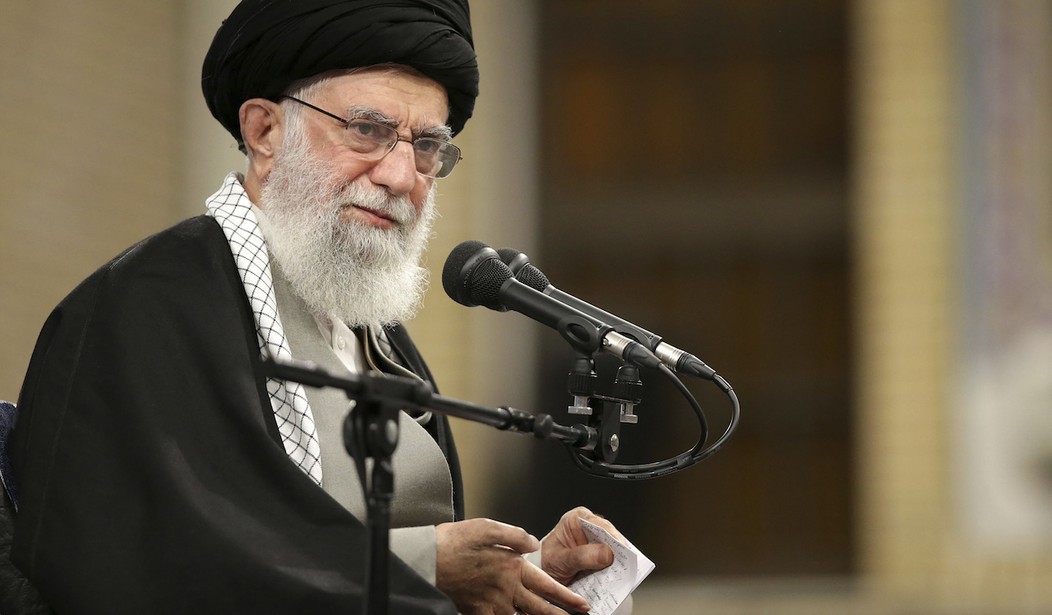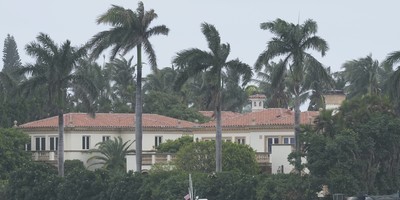While few politicians or governments are unaware that acquiring an atomic bomb is one of Khamenei's strategic goals to ensure the survival of his government, there is still insufficient will to prevent him from achieving that goal.
The 2015 accord(JCPOA)between Iran and the P5 + 1 (US, Russia, China, Britain, France, and Germany) limited Iran's nuclear activities for a short period (15 years). However, even after this agreement, Iran continued its nuclear activities, such as working on the production of more advanced centrifuges, either covertly and out of sight of IAEA inspectors or under the guise of research to produce isotopes and treat cancer patients.
After Donald Trump pulled out of the deal in 2018 and re-imposed US sanctions, Iran, had already equipped itself with more advanced IR-6 centrifuges with five times the capacity of the first-generation IR-1 centrifuges and began to increase its enriched uranium reserves further than agreed in JCPOA.
Currently, Iran has begun using IR-8 centrifuges, which are 16 times more efficient than IR-1 and can shorten the enrichment time significantly. Also, by resuming enrichment at a concentration of 20% and increasing it to 60%, it has become as close as possible to producing the enrichment needed to make an atomic bomb.
According to The New York Times and the Institute for Science and International Security, It now takes just about a month for Iran to reach the enrichment level needed to make an atomic bomb.
In 2015, the Iranian regime was in a state of complete bankruptcy. Unfortunately, however, the policy of appeasement of the West and the fear that the collapse of the mullahs in Iran may lead to regional instability, the demands of the regime were largely accepted. The mullahs were allowed to limit their nuclear activities for only a short period of 15 years, instead, all sanctions imposed on the regime was lifted, Iran was allowed to sell its oil, investors were encouraged to return and invest in Iran, and billions of their frozen assets were released and flown to Tehran in cash.
Recommended
Now it seems that history is repeating itself!!
Because Khamenei, who had until recently strongly opposed negotiations with the United States and had put difficult conditions on the table to return to negotiations, suddenly agreed with the visit of the Director-General of the International Atomic Energy Agency(IAEA), Mr. Rafael Grossi, to Iran and gave the green light to return to the Vienna talks!
Has he given up his desire to acquire a nuclear bomb and come to the conclusion that without nuclear weapons and only with the lifting of sanctions, he could save his regime from this situation? Or maybe he was worried that the IAEA’s Board of Governors would issue a resolution against Iran and send Iran's nuclear file back to the Security Council, which would add the UN sanctions to the existing US sanctions and return Iran to the pre-2015 economic situation that brought his regime to the brink of suffocation!? Khamenei is therefore pursuing a well-known policy of buying time through resultless negotiations with the West and the IAEA.
Although Khamenei sees his survival in acquiring an atomic bomb by following North Korea's example, he knows that Iran is now in the worst economic situation, with 80% of Iranians living below the poverty line, with the inflation rate generally rising over 50% and for some essential food items over 70%. Many factories and production centers have been forced to close and unemployment is such that one-third of Iran's youths are unemployed. Nearly a third of the population of metropolises such as Tehran and Mashhad can no longer afford the high housing costs and as a result have been driven to the outskirts of cities and live in shanty towns that lack the necessary facilities such as running water and electricity.
Iran's budget deficit is now more than 464,000 billion tomans (Iran Currency), and without the lifting of sanctions, there is no prospect of getting out of this situation. The government is forced to print banknotes without support, which will further increase inflation. The vast majority of Iranians, fed up with the corruption and incompetence of the Mullahs’ dictatorship, want regime change and a democratic government with the separation of religion and state. They express this demand despite the security forces' brutal repression in the protest rallies and the strikes of workers and employees that we see almost every week, with slogans such as death to Khamenei and death to the dictator They also made this clear publicly with the widespread boycott of the presidential election last June. According to reliable sources, despite all the propaganda and arrangements to get people to the polls, only about 10% of eligible people went to the polls.
Meanwhile, the COVID-19 pandemic is also taking its huge toll in Iran. Currently, Iran has the highest number of victims of this disease globally as per its capita. So far more than 428,000 people have died due to this disease. The people blame Khamenei for deliberately preventing the importation of the valid Pfizer, Moderna and Astrazeneca vaccines into Iran, and consider him the main culprit and perpetrator of this massacre and want him to be tried.
The situation is so bad that according to some officials of the regime, the Iranian society is like a time bomb that is getting closer to the time of the explosion, or according to the former president, Ahmadinejad, a flood is coming that will soon take everyone away.
In such circumstances, Mr. Grossi traveled to Tehran and at the end of the trip described the outcome of the talks with Iranian officials as "constructive." He confirmed in a press conference that he was pleased to meet the new head of the Atomic Energy Organization of Iran, and confirmed that "in less than two weeks, the IAEA General Conference will be held in Vienna, which is one of the most important nuclear events in the world."
The United States also implicitly expressed interest that Iran's return to the Vienna talks would allow the lifting of sanctions related to JCPOA.
It is quite clear that the P5 + 1 countries will also express their satisfaction with these words and give signals to the Iranian regime of the benefits that they can get from its return to the Vienna negotiations and drafting a new agreement.
In reality, reaching a new agreement with Iran and lifting sanctions can be very beneficial for the western countries and it can open the 85 million Iranian market for investment and the export of its products.
Also, with the entry of Iranian oil and gas into the world market, the price of these products will go down, which will benefit industrialized countries.
At the same time, they think that they can prevent the Iranian regime from acquiring an atomic bomb, at least for some time. But this is the same miscalculation that could give Khamenei new strength and save him from the brink of overthrow.
While if the Western countries, especially the United States, stand by the Iranian people and put strict conditions on the table, they can either force Khamenei to give up not only its nuclear activities but also its missile programs and meddling in the region. Otherwise, the growing worsening of Iran's economic and social situation will cause widespread social uprisings that will be destined to bring the regime down.
Khamenei knows that he cannot leave the JCPOA suddenly and completely, but he seeks to buy time and disregard the IAEA and secretly follow his nuclear ambitions. To what extent he may be able to play this game, what the international community's response may be and how the Iranian society will react to all the economic and social shortfalls are matters worth pursuing?
Cyrus Yaqubi is a Research Analyst and Iranian Foreign Affairs Commentator investigating the social issues and economy of the Middle East countries in general and Iran in particular.

























Join the conversation as a VIP Member